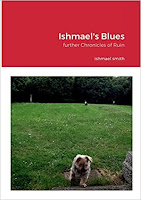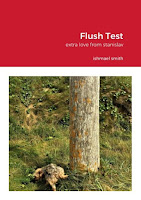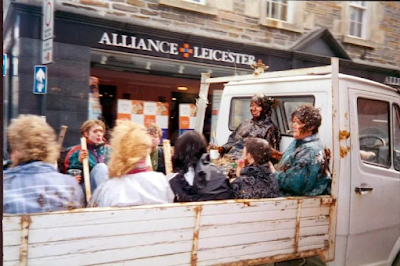Wes Streeting launches plot to make British people go to work.
But it is unBritish! cry critics. For 75 years our people have become accustomed to being financially supported by the State, just like Saudi Arabians. We want a Citizen's Account, too, which Saudi gives its citizens (maybe not its non-citizens, numbering a third of the population), as a basic income, to avoid burdening lower income families with high prices for oil, fuel and energy and VAT. Our British families have high prices for those things. We have VAT, too, and we are having to fill in forms spelling out how sick we are and how we need a car because we have explosive diarrhoea so can't travel on public transport. And it would be cheaper, with no pesky form-filling and petty official-dom assessing truth and lies and doctors (god bless them) being intimidated into handing out sick notes. After all, Saudi's Citizen Account has cost Saudi a mere £400,000,000 since 2021 and supports 3.7 million households, whereas our health and welfare expenditure is £48,000,000,000. That's more, in case all the noughts are causing a bit of cross-eye syndrome, like me - quick, issue that woman with a car, she's got strabismus. So, Wes, here's my plot: free money for all low-income Citizens, standard rate, no extras for having diarrhoea. And a car. And you keep all the free money when you get a job, up to the income level of junior resident, doctors, who, as we all know are bloody cheeky bastards, already earning way in excess of Britain's average wage of £37,430. In their first year, they earn basic £33,000, with another 10 grand for extras, and when they reach core training, they are on £67,000. And now they are blackmailing us again, We're going on strike again, unless we get another 29% - on top of last year's 22% and stuff your poor, your old and your sick. Hippocratic oath? Hypocrisy oath, more like. I never did get over watching Medics "relaxing" in Birmingham University's Student Union bar. Medics and Mech. Eng. That's where I learned my rugby songs. You just can't respect them any more. Yes, doctor, you say, sniggering.
Right, back to my plot for Welfare reform. In addition to everyone under the junior resident doctor paygrade getting the Citizen Account free money, they get a Motability car per household. If there's another car in the household, they don't get it. We'll rely on neighbours grassing them up - that's what neighbours are for.
We'll rename it the Citizen's Account car, which name will be proudly displayed along the sides. Here's the rub - the cars available will only be British cars, made in Britain, by a British work force and painted in a nice British racing green. And to placate Ed Milliband, they will be electric, until he gives in.
Win, win, huh? Support British industry. Give British people jobs. No more Motability scheme issuing foreign cars to people in exchange for part of their disability benefit at a cost of £33.7 million a year to the Government - that's me, that is, tax payer, right? This cost to the government schtick is crap, really - the Government has already given the disabled people the money, and they are just taking some back - crooked thinking. If you don't want disabled people to have things, don't give them the money in the first place.
So, how does my Welfare Reform Plot differ from Gorgeous, Pouting Wes Streeting's Welfare Reform Plot? ( mrs ishmael, Wes is spelling that P-I-L-O-T)
Wes, bless his beautiful blue eyes,
believes "we simply can't afford to keep writing people off". He's already told us we can get Ozempic free from our GP (my chum, who needs an operation to replace her knees with robocop knees, but won't get the operation until she has lost weight, was told by her GP that she's not fat enough to qualify for the free injections, so she is paying for the injections herself. She blames her parents for her genetic profile and her mum for giving her food as a child. Maybe she should just buy the knees and "go private", as we common people say. The Ozempic has turned out not to be a magic bullet. But it is expensive.) So, in order not to write people off by their GPs issuing sick notes - the NHS issued more than 11 million notes last year, 90% of which declared the patient "not fit for work", instead, they have to write prescriptions for job coaches or the gym. His plot is being trialled in 15 regions. Best of luck with that one. You'll remember that one of my former careers was as a Probation Officer in England? One posting had me managing a Community Service scheme for offenders - you know, instead of going to prison, you have to agree to do a number of hours of unpaid work in the community. Agreement by the offender is necessary because we don't have slavery in this country, unlike in some Arabian countries. So, when the offender complains: Miss, this is slave labour, you can chortle back at them and say, Why, not so, young man, there is no slavery in this country. You agreed." Having agreed, they cannot then retract their agreement without me taking them back to Court and inviting the magistrates to send them to prison for their original offence. Michael Howard,
 |
| Is he dead yet? |
was Home Secretary at the time, under John Major (altogether now, a rousing chorus of the John Major Song, to the tune of the Ash Grove - it goes like this, as invented by mr ishmael, when high on Briwax, having just polished the inside of a Victorian Compactum: John Major, John Major, John Major, Jo-ohhn Mayjor...John Major John Major, John John John John John.) So, Michael Howard went off to The US on a fact finding trip and came back with this whizzo idea - for the first failure to show up to do your slave labour, you get a yellow card. For your second failure, you get a red card. The Home Office issued templates to all the Probation Offices, which my secretary had to fill in with relevant details, then print off on Home Office supplied paper which had the word red or yellow printed across it in the colour appropriate to the level of warning. Waste of fucking time and ink, of course, but kept us in work. The crim responded by saying, But I was sick, Miss and couldn't come in. So I had to ask for a medical certificate. This was after self-certification had come in, but Michael Howard didn't believe the crims, but would believe a doctor - obviously hadn't had my Student's Union bar experience and laboured under the delusion that these middle-class professionals would do the right thing, tell the truth and not issue the sick note. Really? Really? I talked to one of the regular sick-note issuers, who said to me - Look, mrs ishmael, I've got a hulking great vicious crim in my surgery - and you expect me to refuse him his sick note? I have a lively sense of self-preservation.
I rather think that lively sense of self-preservation is going to kick in with the 15 trial GP practices and the doctors will issue not fit for work, gym or job coach certificates.
Vote mrs ishmael for free money and a free car. You know it makes sense.

Nope, the Dwarves Macron and Starmer, are attempting to pull our collective legs. I think Macron just enjoys getting out of France, which doesn't like him anymore and thinks he's married to a very short GILF (Grandad I'd like to fuck). No, not Jeremy Corbyn. For god's sake, no, not Jeremy Corbyn. Some people are saying he's starting up a new political party. With that scary woman, Zarah Sultana. But have they told the Magic Grandpa yet?
Special extended
edition of Radio Orkney this morning, drooling about the weather being perfect for the games
and how it couldn’t be better and the Princess Royal will have a lovely time
opening the games and how the streets will be filled with gaiety and laughter. Orkney College is now closed to the public because they’ve made an Olympic village
in there to contain the athletes who are beginning to arrive – there was an outside
broadcast from the airport, where the volunteers in orange uniforms are waiting
to greet the teams from far-flung islands by saying Welcome and giving them an
Orkney goody bag containing a knit your own sex offender from North Ronaldsey
wool kit, a taster kit of street drugs and miniatures of Orkney whiskey, gin,
rhubarb vinegar and cheeses. The bunting is going up, Bignold Park has had its
Edwardian massive gates painted and is now closed to the public while they set
up the Park for the commencement ceremony.
What a shame you are having to miss
it.
Actually, quite a few residents are missing it. On purpose. Flooding onto the ferries to the mainland. One chap was up early, packing his family into his car and off for a long weekend to
their second home on one of the Isles which is not hosting a sporting fixture.
Stringent taxes for second
home and Games Dodgers, Rachel, jump to it.
.......................................................





































